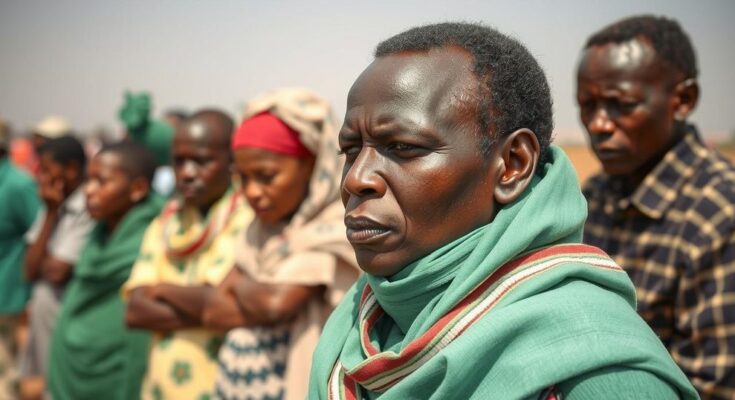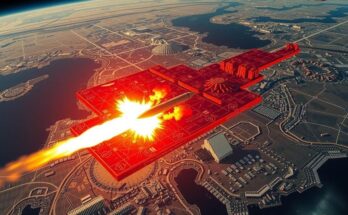Sudan’s ongoing crisis has been neglected by global media and humanitarian agencies, leading to widespread unawareness of the military and humanitarian situation. The country now suffers from a division along financial lines, operating with two currencies under rival military factions. This situation raises concerns over national unity and a potential future secession, paralleling historical events from the South Sudanese split.
The ongoing crisis in Sudan has seemingly faded from the global conscience, overlooked by major media outlets and humanitarian organizations alike. This neglect has rendered the conditions within Sudan increasingly obscure; there is little awareness of military movements, factional control, the extent of human suffering, or the dire humanitarian crisis that continues to unfold. Regrettably, the international community has largely ignored Sudan while focusing on other conflicts, such as those in Syria, Ukraine, and discussions concerning Iran’s nuclear program.
Emerging reports reveal an alarming financial divide in Sudan, as the country now operates with two distinct currencies. The Northern regions remain under the control of the Sudanese army, who has implemented a new currency system, while those integrated under the Rapid Support Forces struggle without functional banks, resulting in a currency they are unable to exchange. The populace has taken to referring to the regions as “old currency states” and “new currency states,” indicative of a deepening division reminiscent of the period leading up to South Sudan’s secession.
As citizens grapple with being fragmented into two factions, they confront starkly different socio-economic realities, reflecting acute risks of potential division. This scenario echoes historical precedents where differentiation of governance foreshadowed disunion, compelling observers to ponder whether Sudan is on the precipice of further fragmentation. Despite the evident need for intervention, there appears to be a troubling stagnation in global responses as the situation remains dire for many Sudanese, raising questions about the effectiveness of humanitarian efforts in the region, or if more divine solutions are warranted than human interventions.
Sudan has faced decades of conflict, political instability, and humanitarian crises, making it a country of significant concern for international observers. Despite its importance due to geographic ties with Egypt and the Nile Valley, the plight of Sudanese people often slips from the collective memory as other global crises take precedence. The division in governance as evidenced by the operation of two currencies under different military factions exacerbates the humanitarian crisis and could lead to serious socio-economic ramifications reminiscent of past national fractures.
The article elucidates the dire circumstances facing Sudan, highlighting the obscurity of the crisis amid a lack of international engagement. The financial disarray, marked by the dual currency system, symbolizes a deeper division that threatens national unity and echoes historical precedents. The stark contrast between the governed regions underscores an urgent need for renewed attention and action from the international community to avert the nation’s potential further divisions and resultant humanitarian disasters.
Original Source: themedialine.org




